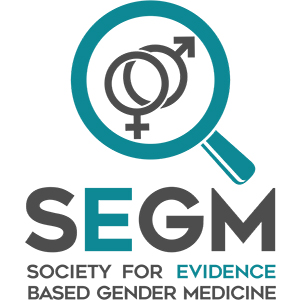In most all situations. (save "exceptional" and research cases)

 segm.org
segm.org

While I haven't read the Alabama bill, this doesn't sound too far off, functionally. The basis for the concern seems to be a combination of a significant rise in post-pubescent gender dysphoria -- i.e. no dysphoria as a kid, a sudden onset in teen years, especially amongst girls -- along with little to no research into long-term effects of some of the treatments offered.
For whatever reason, these concerns do not seem to be appreciated by a certain segment of the political left. What doesn't seem to be appreciated is the very real possibility that a large number of these dysphoric teens -- especially girls -- are being swept up in a social phenomenon and do not fit the traditional conception of a trans individual that has a brain that mismatches the body's sex. (it may not be simple coincidence that the rise of this phenomenon coincided with the rise of social media and the internet)
The gender affirming model of care -- which often enough isn't far off simply 'taking their word for it' and acting -- could be inadvertently harming large numbers of confused kids. A more cautious process seems prudent at this juncture. Alabama, in time, may be proven correct. (even if their law was created in partisan haste)
Key points from Sweden National Board of Heath:

Summary of Key Recommendations from the Swedish National Board of Health and Welfare (Socialstyrelsen/NBHW)
Background In February 2022, the Swedish National Board of Health and Welfare (NBHW) issued an update to its health care service guidelines for children and youth

Uppdaterade rekommendationer för hormonbehandling vid könsdysfori hos unga
www.socialstyrelsen.se
While I haven't read the Alabama bill, this doesn't sound too far off, functionally. The basis for the concern seems to be a combination of a significant rise in post-pubescent gender dysphoria -- i.e. no dysphoria as a kid, a sudden onset in teen years, especially amongst girls -- along with little to no research into long-term effects of some of the treatments offered.
For whatever reason, these concerns do not seem to be appreciated by a certain segment of the political left. What doesn't seem to be appreciated is the very real possibility that a large number of these dysphoric teens -- especially girls -- are being swept up in a social phenomenon and do not fit the traditional conception of a trans individual that has a brain that mismatches the body's sex. (it may not be simple coincidence that the rise of this phenomenon coincided with the rise of social media and the internet)
The gender affirming model of care -- which often enough isn't far off simply 'taking their word for it' and acting -- could be inadvertently harming large numbers of confused kids. A more cautious process seems prudent at this juncture. Alabama, in time, may be proven correct. (even if their law was created in partisan haste)
Key points from Sweden National Board of Heath:
Summary of Key Points (NBHW February 2022 Update)
- Following a rigorous analysis of evidence base, there has been a marked change in treatment recommendations. The guidance has changed from a previously strong recommendation to treat youth with hormones, to new caution to avoid hormones except for “exceptional cases.” A more cautious approach that prioritizes non-invasive interventions is now recommended, due to recognition of the importance of allowing ongoing maturation and identity formation of youth.
- Currently, the NBHW assert that the risks of hormonal treatments outweigh the benefits for most gender-dysphoric youth:
- Poor quality/insufficient evidence: The evidence for safety and efficacy of treatments remains insufficient to draw any definitive conclusions;
- Poorly understood marked change in demographics: The sharp rise in the numbers of youth seeking to transition and the change in sex ratio toward a preponderance of females is not well-understood;
- Growing visibility of detransition/regret: New knowledge about detransition in young adults challenges prior assumption of low regret, and the fact that most do not tell practitioners about their detransition could indicate that detransition rates have been underestimated.
- Psychological and psychiatric care will become the first line of treatment for all gender dysphoric youth <18.
- A substantial focus is placed on gender exploration that does not privilege any given outcome (desistance or persistence).
- The presence of psychiatric diagnoses will lead to prolonged evaluation to ensure that these conditions are under control and that gender transition does not do more harm than good.
- The diagnosis of ASD (autism spectrum disorder) will necessitate additional evaluation.
- The well-known lack of adherence to gender norms among ASD individuals could lead them to misattribute their experience to being “transgender” and inappropriately transition.
- The guidelines also posit that some youth on the autism spectrum who are suffering from gender dysphoria may not come across as genuinely suffering because they take little care to present in ways consistent with the gender they identify with.
- Access to hormonal interventions for youth <18 will be tightly restricted. The goal is to administer these interventions in research settings only, and to restrict eligibility criteria to mirror those in the “Dutch protocol.”
- The key prerequisite for hormonal treatment of youth is the prepubertal onset of gender dysphoria that is long-lasting (5 year minimum is mentioned), persists into adolescence and causes clear suffering.
- Some exceptions apply. Puberty blockade can be offered in extreme circumstances to those with post-pubertal onset of gender dysphoria, especially for biologically male patients. However, it does not appear that cross-sex hormones can be offered to the <18 youth with no childhood history of gender dysphoria.
- Social transition may be recommended to some youths. Social transition may be recommended at the latter stage of assessments. The health care service may accommodate these young people by providing them with “aids” such as packers, binders, tucking devices, and breast and genital prosthesis.
- Most youth will receive psychotherapeutic care in their home regions.Gender-affirming interventions will be provided at few highly specialized centers and in the context of research.
- Home regions will need to develop competence in managing gender dysphoria with psychological and psychotherapeutic interventions.
- Centers offering “gender-affirming” interventions will be centralized, and their number reduced.
- Treatment eligibility will be based on the criterion of “distress,” and not “identity.”
- The DSM diagnosis of “gender dysphoria” will be a prerequisite for eligibility for “gender-affirming” hormonal interventions.
- The presence of a transgender identity that is not causing distress or functional impairments is not sufficient.
- At the current time, youth who identify as nonbinary will not be eligible for hormonal interventions even in research settings. Future updates to these guidelines will address appropriate treatments for this patient population.

